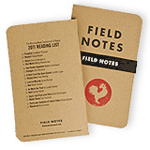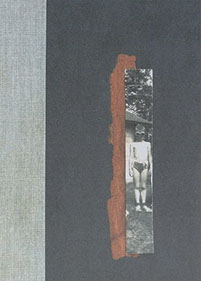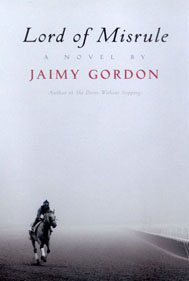-
March 14, 2011
Opening Round
-
Commentary by
Kevin Guilfoile & John Warner
-
Today’s Winner:
4Nox
John: If the Tournament of Books is to be limited strictly to imaginative works of fiction, Nox probably doesn’t belong.
Or maybe it does. It’s hard to tell, which is one of the most interesting things about it.
Lord of Misrule, on the other hand says loud and clear, “literary novel,” with its original and arresting prose, the stable-bred patois Womack identifies. As surprising as it might seem for a book from such a small press, (McPherson & Company) to win a big award, Lord of Misrule is sort of tailor-made for such things. The N.B.A. is primarily judged by writers who are also teachers of creative writing, and Gordon’s prose, a recipe clearly of her own, that also makes sure it’s noticed, is the kind of thing teachers of creative writing (and I guess I can include myself in that category) tend to value. It feels different, original, of itself. When you teach creative writing, you spend a lot of time reading work somewhere between not-so-good and competent, often work that looks and operates alike. A book that challenges some of those notions, while still being safely explicable, has a good chance of victory as long as it gets on the committee’s radar.
 Buy anything from Field Notes from now until the end of the ToB and receive a special “reading list” memo book free, while they last. Use coupon code ROOSTER.
Buy anything from Field Notes from now until the end of the ToB and receive a special “reading list” memo book free, while they last. Use coupon code ROOSTER.Gordon’s writing is a pretty neat trick indeed, but I felt similar to Andrew Womack, in that the prose is layered over a pretty conventional story that doesn’t move so much, and tends to cover similar ground in successive waves as we head towards the final race. In the end, for me, Lord of Misrule was a book I admired, but never fell in love with.
I read Nox in a single sitting of under an hour, though “read” is the wrong word. “Looked through,” or “experienced” might be better. I’m one of the now many who reads in both physical copy and digital formats, and for most of the time, and most books, I can’t really say that the digital version alters the experience in any significant way. Regardless of how you’re reading something, often, text is text is text.
But Nox makes a strong argument for its necessity as a physical book. It comes shrink-wrapped, and upon opening, reveals itself to be a box which contains a rendering of a notebook, the pages connected via an accordion fold. The literally continuous nature of the book makes for an unusual sensation as you read, since the pages unfurl from one side and stack on the other. It was almost impossible to stop reading, as the next page was already partially unfolded, reminding you of its looming presence. This is unlike a digital text where you can only assume there’s more behind the next click.
The design made the reading experience immersive and hypnotic for me. The story Carson tells is both allusive and illusive, and some months later from the experience, I only recall the barest of facts. I needed Andrew’s commentary to remind me. I’m not even sure I read all of it, choosing to page through certain passages, but I nonetheless found it emotionally moving, probably close to the effect Carson intended.
As I said, I’m not sure it belongs, but I’m glad Nox is here.
Kevin: I am not by any measure an accomplished horseman. But I grew up in the country, not far from Saratoga. I worked three years for a man who raised thoroughbreds. I read old Red Smith columns for fun, and I still make it to the track every summer where I am inexplicably fond of the trifecta box. The stuff that’s in Lord of Misrule is stuff that I like. The affected style might not be for everyone, but it is for me. And when Jaimy Gordon starts describing an actual race (I think there are four of them in the story), holy cats, this book really takes off. Since finishing it, I’ve gone back a couple of times to read some of the race sections again and they’re just beautiful. In fact, once you get to a race scene, the vernacular in the rest of the book makes perfect sense.
I won’t deny Nox is interesting. But I am also one of those people who will say Nox doesn’t belong in this tourney. Mostly because I am now forced to explain why I prefer Lord of Misrule by a large margin in this match and in doing so, diminish what Carson has accomplished.
Nox is intensely personal—so personal, in fact, that it’s kind of shocking it was commercially produced at all. I quite enjoyed the 45 minutes or so that I spent with it. The object (is it even a book?) is beautifully designed. But it was much more of an aesthetic experience than an emotional one. I certainly felt Carson’s pain in losing her brother. I can’t say that I ever shared it, though. And that to me is the difference between Carson’s wonderfully packaged poem (I guess) and a fully realized novel. Carson’s attempt to reconstruct the life of a person I don’t know through the disjointed memories of other people I don’t know and adding up to not very much, never “pulled me headlong” as it did Judge Womack. As someone who took three years of Latin, I was more engaged with the Catullus poem that Nox translates slowly, word for word throughout the text.
But Carson didn’t ask anybody to compare her work to a bunch of novels. I think it’s pretty good at being what it is, it’s just difficult for me to say exactly what the is is. Like you, I’m kind of glad it exists, though. And to the extent that it’s mixing things up in the ToB, I’m all for that. Predictability is death, John. Hooray for Nox!
Tomorrow James Hynes’s Next meets So Much For That by Lionel Shriver, which could set the table for a possible Next-Nox matchup in the quarterfinals. We shall see.
Kevin Guilfoile is the author of two acclaimed novels, Cast of Shadows and The Thousand, which have been translated into more than 20 languages.
John Warner’s novel, The Funny Man, will be released late September of this year by Soho Press. For the time being, he teaches at Clemson University.

















